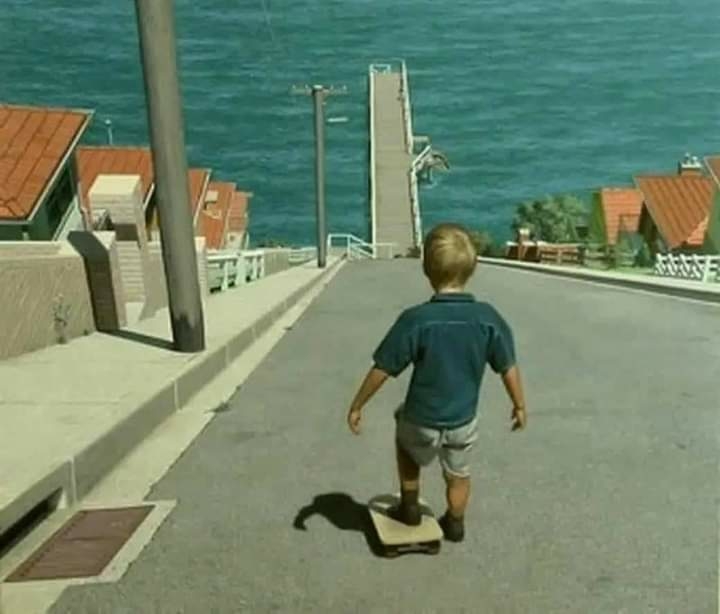-
Posts
115,265 -
Joined
-
Last visited
-
Days Won
585
Content Type
Profiles
Forums
Events
Everything posted by RETIREDFAN1
-

PIZZAGATE....... Pedophiles in high places
RETIREDFAN1 replied to RETIREDFAN1's topic in Political Arena
-
-
A matrix calculation tip... An algorithm in Smath Studio for Cholesky reducing, for improve the time of computer process in large matrix calculation. I hope you enjoy it... #matrix
-
-
-
On this date in 1970, "Patton" opened in New York City. The movie begins without showing the 20th Century-Fox logo, or any other indication that the film is starting. At military bases across the US, theater owners reported that soldiers in the audience would often stand up and snap to attention when they heard the movie's opening line ("Ten-hut!"), assuming it to be a real call to attention. Screenwriters Francis Ford Coppola and Edmund North had to tone down Patton's actual words and statements in the scene, as well as throughout the rest of the film, to avoid an R rating; in the opening monologue, the word "fornicating" replaced... a word that meant "fornicating" when he was criticizing The Saturday Evening Post. Also, Scott's gravelly and scratchy voice is the opposite of Patton's high-pitched, nasal and somewhat squeaky voice, a point noted by historian S.L.A. Marshall. However, Marshall also points out that the film contains "too much cursing and obscenity [by Patton]. Patton was not habitually foul-mouthed. He used dirty words when he thought they were needed to impress." When Scott learned that the speech would open the film, he refused to do it, as he believed that it would overshadow the rest of his performance. Director Franklin J. Schaffner assured him that it would be shown at the end. The scene was shot in one afternoon at Sevilla Studios in Madrid, with the flag having been painted on the back of the stage wall. All the medals and decorations shown on Patton's uniform in the monologue are replicas of those actually awarded to Patton. However, the general never wore all of them in public and was in any case not a four-star general at the time he made the famous speeches on which the opening is based. He wore them all on only one occasion, in his backyard in Virginia at the request of his wife, who wanted a picture of him with all his medals. The producers used a copy of this photo to help recreate this "look" for the opening scene. The Best Picture Oscar for "Patton" was given to the George C. Marshall Foundation Library at the Virginia Military Institute in Lexington, Virginia, the same institution that generations of Pattons attended, by producer Frank McCarthy a few weeks after the awards ceremony, and is on display there.
-
Vol.XX No.XI Pg.1 January 1984 Men May "See" God Robert F. Turner Will Rogers is reported to have said, "People's minds are changed through observation, not argument." Perhaps that is why the best sermons demonstrate — are more than logic or "proof." It is a hard lesson to learn. This does not detract from the power of the gospel — unless you believe "gospel" is limited to a "set of commands" which must be hammered into the audience. And have we not learned "a man convinced against his will is of the same opinion still"? The demonstration of love that is seen in Christ's self-sacrifice; of power and hope, that is seen in the resurrection; and fruits or influence of the gospel on lives of others — these things change minds today. Christ taught by demonstration and appeal to the sense of "right" or "ought" he knew to be in every responsible person. "What think ye..." (Matt. 17:25; 18:12; 21:28). Paul used man's sense of justice and propriety to "sell" his points (Eph. 6:1; 1 Cor. 9: 11; 11:13-14). None of this makes final authority of man's "mores." But it shows the compatibility of God's laws with that deep down "best" in man. It suggests we should start with that, to progress to positive laws; use what is there to lead toward the better and higher things of God. We demonstrate — allow the innate senses to work (observe) and conclude. How else does "faith come by hearing"? Do we think we can force a man to believe? Fear of punishment, appreciation of what Christ has done for us, and the highest love for God — all begin with that part of man which makes him man — more than an animal. The doctrine of depravity is more widely accepted (even by brethren) than we may realize. Many equate what I have written above with saying man can save himself by his own power. No! All have sinned, and are helpless but for the grace and mercy of God. By giving Christ, the justice of God is preserved though He forgives our sin. But the gospel God gave is suited to the man God made — can be received by all who will hear and heed — not just those on whom God sends an additional "enabling power." God knew man had it in him to believe and be saved. We must apply truth to what is in man.
-
45 years ago today, April 8, 1979, the final episode of All in the Family aired. It originally broadcast on the CBS television network from January 12, 1971, to April 8, 1979. In September 1979, a new show, Archie Bunker's Place, picked up where All in the Family had ended. That sitcom lasted another four years, ending its run in 1983. Produced by Norman Lear and Bud Yorkin and starring Carroll O'Connor, Jean Stapleton, Rob Reiner, and Sally Struthers, All in the Family revolves around the life of a working-class bigot and his family. The show broke ground in its depiction of issues previously considered unsuitable for U.S. network television comedy, such as racism, homosexuality, women's liberation, rape, religion, miscarriage, abortion, breast cancer, the Vietnam War, menopause, and impotence. Through depicting these controversial issues, the series became arguably one of television's most influential comedic programs, as it injected the sitcom format with more realistic and topical conflicts. The show ranked number-one in the yearly Nielsen ratings from 1971 to 1976. It became the first television series to reach the milestone of having topped the Nielsen ratings for five consecutive years. The episode "Sammy's Visit" was ranked #13 on TV Guide's 100 Greatest Episodes of All Time. TV Guide's 50 Greatest TV Shows of All Time ranked All in the Family as #4. Bravo also named the show's protagonist, Archie Bunker, TV's greatest character of all time. In 2013, the Writers Guild of America ranked All in the Family the fourth best written TV series ever and TV Guide ranked it as the fourth greatest show of all time.
-
What is the most expansive fictional universe ever created? The Tommy Westphall Universe. A long time ago, in a fabled era known as the ’80s, there was a TV show called St. Elsewhere. It was about a run down teaching hospital named St. Eligius in Boston and the doctors who worked there. Dr. Donald Westphall was the Director of Medicine, a widower he was raising his two children by himself. One of those children was his autistic son Tommy. Tommy only appeared in fifteen episodes of the series. St. Elsewhere ran for six seasons, and won eleven Emmys, but all anyone cares about today is its final episode. In the final scene of the final episode, it is revealed that the building of St. Eligius is inside a snow globe being held by Tommy Westphall. And his father, who is definitely not a doctor, comes in and says the following: I don't understand this autism thing, Pop. Here's my son, I talk to him, I don't even know if he can hear me. He sits there, all day long, in his own world, staring at that toy. What's he thinking about? The entire six seasons of St. Elsewhere were, in fact, a child’s daydream while looking at a snow globe. So here’s where things start to get a little complicated. The St. Elsewhere character Dr. Roxanne Turner was in an episode of Homicide: Life on the Street where she was accused of murder. But… if Dr. Turner was just a creation of Tommy… how could she possibly be on Homicide? …Unless Homicide was also a day dream of Tommy. There is an episode of St. Elsewhere where the doctors of St. Eligius decide to go out for a few drinks at a local Boston bar. That bar happens to be Cheers, the titular bar from the sitcom Cheers. So all of Cheers, and Frasier, and Frasier again are products of Tommy’s imagination. Detective John Munch was a character played by Richard Belzer who starred on Homicide: Life on the Street, which we know never existed. After the cancelation of Homicide, the character was moved Law and Order: Special Victims Unit. Detective Munch also appears in the shows The Wire, The X-Files, and Arrested Development. So all those shows had to be the creation of Tommy Westphall. Cheers spun off Frasier, which crossed over with Caroline in the City, which crossed over with Friends, which shared a character with Mad About You, which crossed over with Seinfeld. In a few centuries the world of Buffy the Vampire Slayer will be Star Trek, but its distant past (sorry, spoilers) is the reboot of Battlestar Galactica. Doctor Who is canonically taking place in the same universe as I Love Lucy, Hannah Montana, Grey’s Anatomy, and All My Children. And all of it is the creation of one child, which probably explains the continuity errors. Such as no one acknowledging the zombie outbreak in Georgia in The Walking Dead, which is happening at the exact same time as It’s Always Sunny in Philadelphia and Arrow. If you map everything out, there are at least 419 shows which are all in the same continuity with each other, and all are canonically the creation of Tommy Westphall. The first person to propose the Tommy Westphall Universe was legendary writer Dwayne McDuffie. Which was in a blog post criticizing comic book continuity. It was about just how silly it was to try to fit vast and mutually incoherent works all into the same rigid continuity. But you know… he was kind of onto something with that whole Tommy Westphall stuff. They did all crossover with each other. By the way, the Collector in Guardians of the Galaxy has Tobias Fünke on his ship, which means Tommy Westphall is responsible for the MCU.
-
Loved 3 Body Problem.....book and series.....hope they getting season 2 ready.....
-

Political Forum March Madness FINAL STANDINGS.......
RETIREDFAN1 replied to RETIREDFAN1's topic in Political Arena
82% on my women's bracket..... -

Political Forum March Madness FINAL STANDINGS.......
RETIREDFAN1 replied to RETIREDFAN1's topic in Political Arena
@DannyZuco 1190 @Coach Rab 1140 @KirtFalcon 1070 @BlahBlah 1070 @Sportsfanatic1 910 @RETIREDFAN1 880 @BarryLaverty 860 @Lion7000 840 @JBizzle 780 @DaveTV1 770 @PepeSilvia 730 @Monte1076 580 -
Vol.XX No.X Pg.8 December 1983 Stuff About Things Robert F. Turner Preacher dinner dates are nothing unusual, and other members of a family are often there to "have the old buzzard." But it became apparent this was something different — truly special, though not because of the food (which was great) nor because of this preacher (who was treated royally). My heart warmed at the sight of four young men, scattered about the kitchen, helping set the table while teasing their mother, taking verbal punches at one-another, and keeping the place in a general uproar. One was himself a preacher, from a far part of the city; the others were in important secular businesses. All were married, and some had children, but only "the boys" were there — this was their day — and we felt honored to share the day with them. We soon learned that these young men "came home" once a week to reform the former family, circle, and have a meal with their parents. At other times the whole gang was there — in-laws and grandkids — but today they were the kids, with "mom and dad." That mother beamed as she served them, and dad's smile was a badge of excusable pride. Yes, God Blessed That Home! But this home didn't "just happen" to turn out that way, nor was it done without hardship and sacrifice. The father was a hard workingman who had known some very lean years. Construction work, border patrolman, even a session at mining, had moved his family across the southwest. Wherever he went he found or made a church, although he had not a "public talent" — a bit shy in fact. The mother was just that — a "mother" whose earthly love was her home and children. One boy was handicapped from birth with a crippling disease that twisted his body, made him a constant care, and still threatens his life. He is the preacher — working with braces and whatever the nice word is for guts. The other boys got their education with some of the same, for this was no pampered family. They worked, and shared, and cared, and loved. I haven't tried to dig out details, and with my admiration for how things turned out I could very well have missed some less admirable traits. It would be foolish to assume otherwise. But those "sons-come- home" gave me hope for this jaded world, and proved a family can pray and stay together.
-
This ain't one of the cash outs .... really good series ...
-
It's actually really good....
-
This ain't one he just took the money for....looks pretty good....
-
On Apple+













